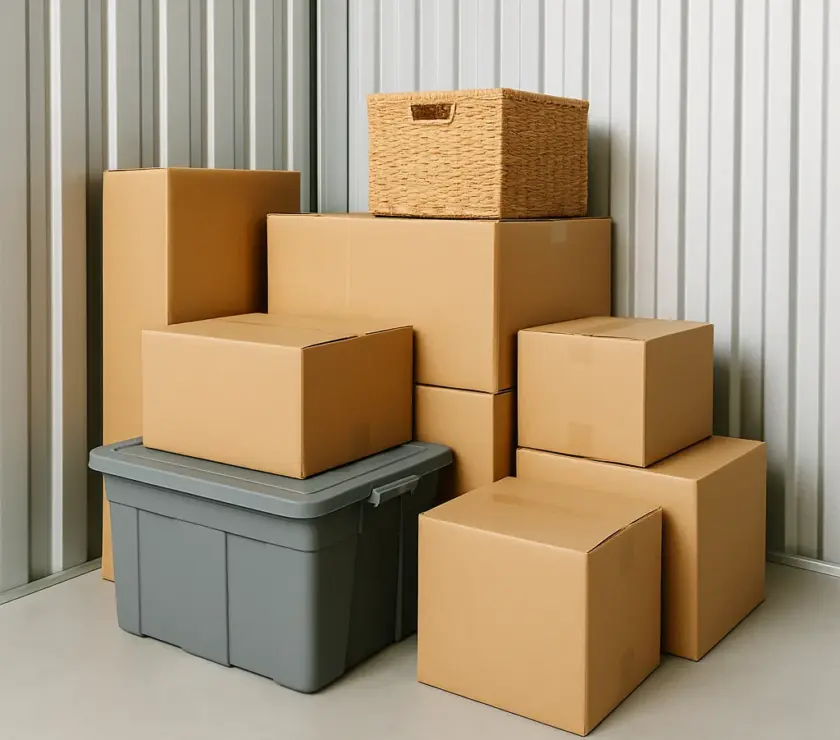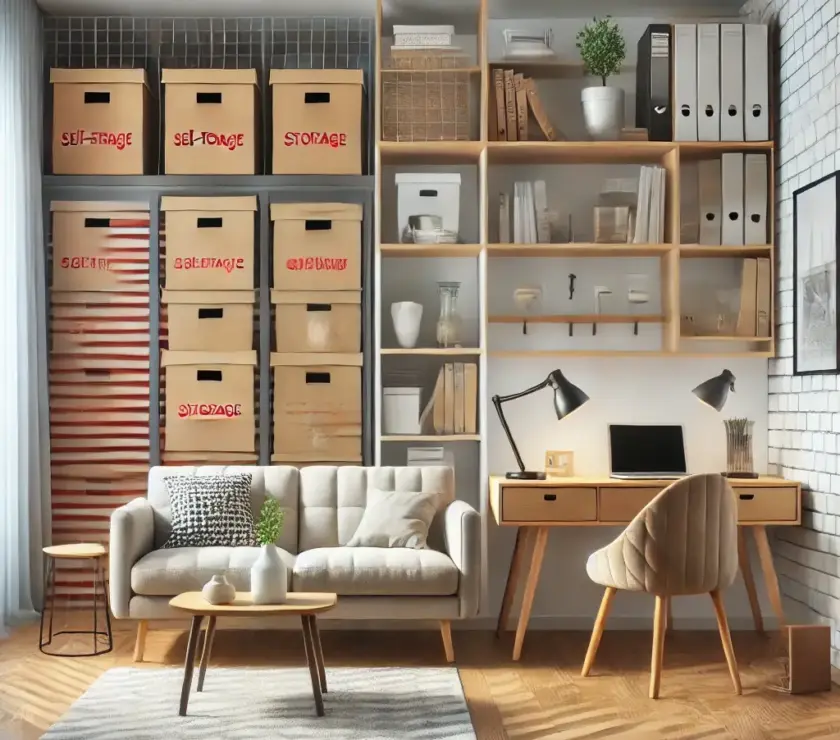Renting a self-storage unit can be an ideal solution for people in various stages of life, whether you’re downsizing, moving to a new place, or simply decluttering your home. With a growing number of self-storage facilities available, it’s important to make an informed decision before signing a contract. To ensure you find the best storage unit for your needs, asking the right questions is crucial.
In this blog, we’ll walk through 10 essential questions to ask before renting a self-storage unit, helping you avoid common pitfalls and making sure you get the best value for your money.
1. What Are the Sizes of the Storage Units?
Self storage units come in various sizes, from small lockers to large garage-sized spaces. It’s important to ask about the sizes available and assess what size will best suit your needs. A good rule of thumb is to determine what items you plan to store and how much space they’ll take up. Are you storing only a few boxes, or do you need to fit furniture, appliances, and more? Don’t overestimate the space you need, as that could lead to paying for unused storage. Most facilities offer a size guide, so consult that and make a list of what you plan to store.
2. Is the Facility Secure?
Security should be one of your top concerns when renting a self-storage unit. Ask what security measures are in place to protect your belongings. Common security features include gated access, surveillance cameras, individual unit alarms, and on-site personnel. Make sure the facility is well-lit and inquire about their entry protocol, such as whether it uses secure keypads or card access. Having a well-protected storage unit gives you peace of mind, especially if you’re storing valuable or irreplaceable items.
3. What Are the Access Hours?
While some self-storage facilities offer 24/7 access to your unit, others have more restricted hours. Knowing the access hours is essential, especially if you anticipate needing to retrieve items outside of standard business hours. If flexibility is important to you, look for a facility that allows access on weekends, holidays, or during late evenings. It’s also worth asking if you can access your unit at any time or if appointments are required for after-hour visits.
4. Are There Climate-Controlled Units?
Climate-controlled storage units are an excellent option if you plan to store items sensitive to temperature fluctuations, such as electronics, documents, artwork, or wooden furniture. Extreme heat, cold, and humidity can damage these items over time. Inquire whether the facility offers climate-controlled units and assess whether this feature is necessary for your belongings. If you’re storing anything that could be affected by temperature changes, investing in climate control could save you a lot of trouble down the line.
5. What Is the Cost, and Are There Any Hidden Fees?
It’s essential to get a clear understanding of the pricing structure before renting a storage unit. Ask about the monthly rental cost, but also inquire about any additional fees such as security deposits, administrative fees, or charges for late payments. Some facilities offer discounts for long-term rentals or prepaying for several months in advance. Make sure you’re clear about all the costs involved, so you’re not surprised by any hidden fees.
6. Is There Insurance Coverage for Stored Items?
While most self storage facilities take security measures seriously, there’s always a risk of theft, fire, flooding, or other unexpected disasters. Many facilities require you to have insurance for your stored belongings. Ask if insurance is included in the rental fee or if it needs to be purchased separately. In some cases, your homeowner’s or renter’s insurance may cover items in storage, so check with your insurance provider as well. If you need additional coverage, most facilities offer it for a reasonable monthly fee.
7. What Is the Rental Agreement Duration?
Understanding the terms of the rental agreement is key before you commit to a storage unit. Ask if there’s a minimum rental period and whether the contract is month-to-month or long-term. Most self-storage facilities offer flexible month-to-month rentals, but some may require a longer commitment. If you’re unsure how long you’ll need the unit, it’s best to opt for a facility with a flexible contract, allowing you to cancel when your needs change.
8. Is the Facility Easily Accessible?
Location is a critical factor when choosing a self-storage unit. Consider how often you’ll need to access your items and how far you’re willing to travel to get to the facility. If you need frequent access, it’s worth paying a bit more for a nearby facility. Check the traffic patterns and ease of access, especially if you’ll be moving heavy or large items. If the facility is located in a high-traffic area, accessing your unit during peak hours could be challenging.
9. What Are the Policies on Moving In and Out?
When renting a storage unit, you’ll want to make the process of moving items in and out as seamless as possible. Ask about the facility’s policies on moving, such as whether they provide carts, dollies, or loading docks to make transporting items easier. Some facilities may also offer move-in specials, like discounted rates for the first few months or free use of moving trucks. Additionally, inquire if you’re allowed to move out before your contract ends and whether there are any penalties for doing so.
10. Are There Any Restrictions on What I Can Store?
Self-storage facilities usually have a list of prohibited items that you cannot store. Typically, these restrictions include hazardous materials like gasoline, chemicals, or explosives, as well as perishable items such as food or plants. Make sure to ask for a list of items that are not allowed in storage to avoid any complications. If you’re planning on storing unique items, it’s essential to clarify whether they are permitted. Also, ask if the facility has any regulations regarding the size and weight of the items you can store.
Conclusion: Make an Informed Decision
Renting a self-storage unit can simplify your life, help you stay organized, and give you extra space when you need it most. However, it’s crucial to ask the right questions to ensure you’re getting the best value for your money and that your belongings will be safe and accessible.
By addressing these 10 essential questions before renting a storage unit, you can avoid common mistakes and find the perfect storage solution for your needs. Whether you need short-term storage during a move or long-term storage for valuable items, doing a bit of research upfront will save you from headaches down the line.
For more insights on self-storage solutions, read our blog post on Self-Storage vs Traditional Storage: Which Is Right for You?.
Happy storing!



